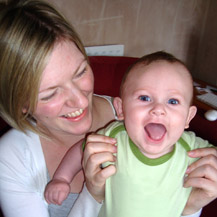Individual Learning Styles: Is Your Child Bright or Gifted?
Kids define themselves in context of their immediate surroundings, mainly school and the home. Peers, teachers, grades, and social identity mold a child’s ego and levels of confidence at school. Kids exhibit individual learning styles. Teachers and parents get stumped when it comes to distinguishing a bright vs gifted child. Help distinguish the two types of learners and identify whether your child could be either one.
There Is a Distinction
In general conversation, a ‘bright’ child could be interchangeable with a ‘gifted’ child. However, researchers point out a difference; observing subtleties helps parents understand their children and behavior. For example, a gifted student may ask thought-provoking and out-of-the-box questions while a bright student is comfortable and efficient in supplying answers. Watch for patterns of behavior rather than label each act. Generally, a child’s feelings toward school and related is a sign of whether they are gifted or bright.
Discovering a Gifted Child
Gifted kids really like learning new things and having ideas. They ask lots of questions in a smart and organized way. But sometimes, teachers and parents might think they’re causing trouble. Even though these kids might not like school much, they have tons of cool ideas. They’re super smart and can do really well in school. That’s why it’s important to put them in preschool programs in Dallas, TX(or similar programs elsewhere) at an early age. This way, parents and teachers can see how smart they are and plan their future schooling better.
Seeing a Bright Child
A bright child is what most think of upon mention of a ‘straight A’ student. They love going to school, are exceptional at answering questions and doing homework, and have great memories. However, such students need encouragement from teachers and parents. Because the student is so mentally and emotionally invested in scholastics, recognition and feedback is crucial. A bright child appreciates guidance and goals.
Getting the Most from Education
Parents and teachers must work together to properly address, react, and nurture gifted and bright children. Each type has its needs and preferences regarding school participation, teacher relationships, a need for encouragement, etc. A bright student’s natural inclination to do well in school fuels their interest. However, they need positive feedback from teachers and parents. Unfortunately, a gifted child can fall through the cracks. Imperceptions and assumptions of parents, counselors, and teachers, along with the predilection to act out, can make such students appear disinterested in learning. These students need special attention and may do better in a small classroom or within a one-on-one setting. A parent may gain added insight via WISC test resources. The WISC tests a child’s learning capabilities versus testing on what has already been learned.
Look for Patterns of Behavior
It’s normal for a parent to misinterpret behaviors after reading about gifted and bright children. Rather than deconstruct your child’s behavior, look for patterns. Also, don’t let a child’s behavior obscure your ability to assess their level of intellect. Those who show poor judgment can be assumed to perform poorly in school.
Elizabeth Porter has worked as a teacher for several years now and is soon-to-be a Mom herself. She enjoys writing education articles aimed at parents so that they can help their kids from home.


